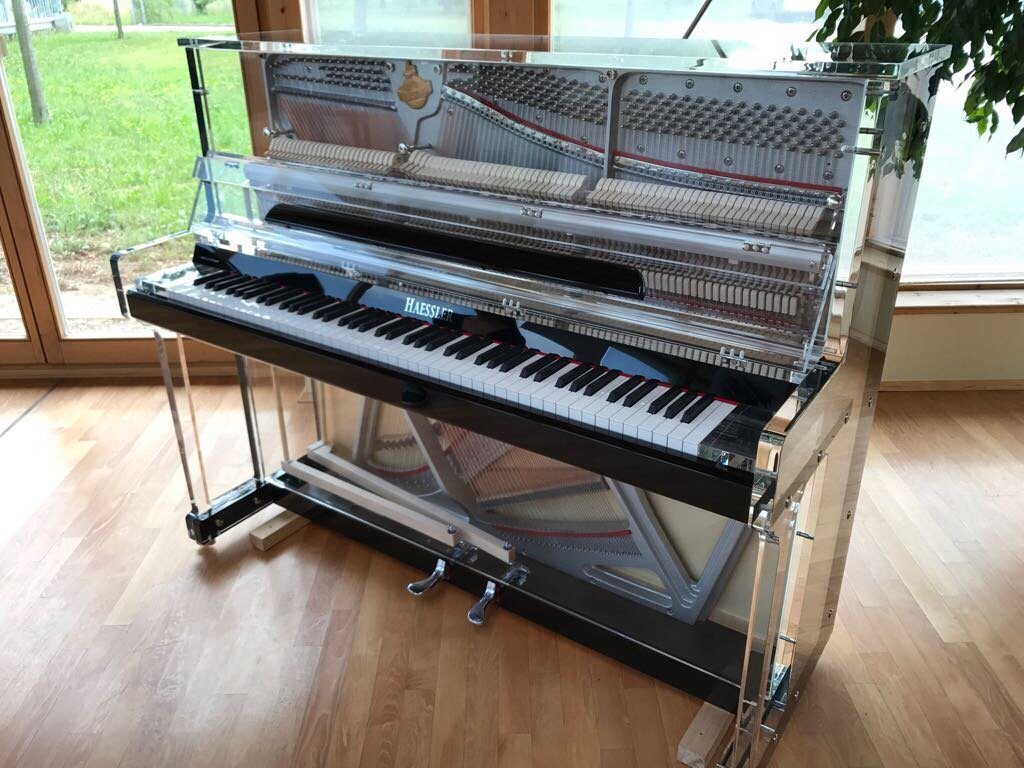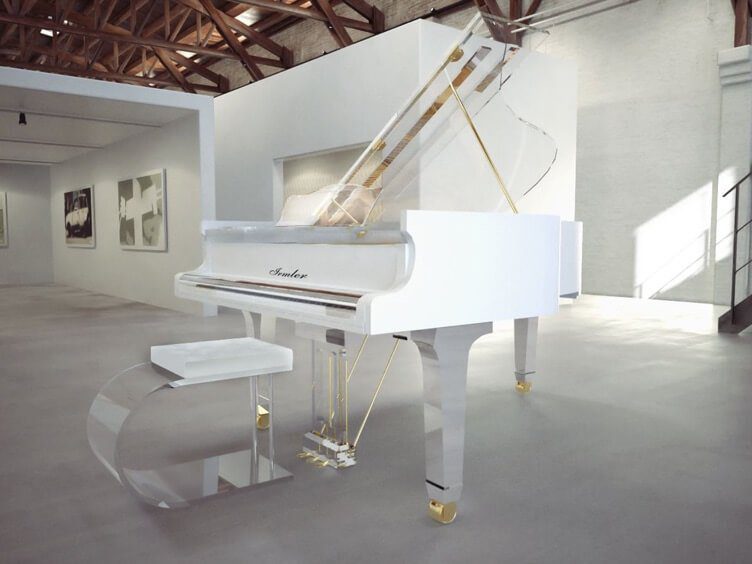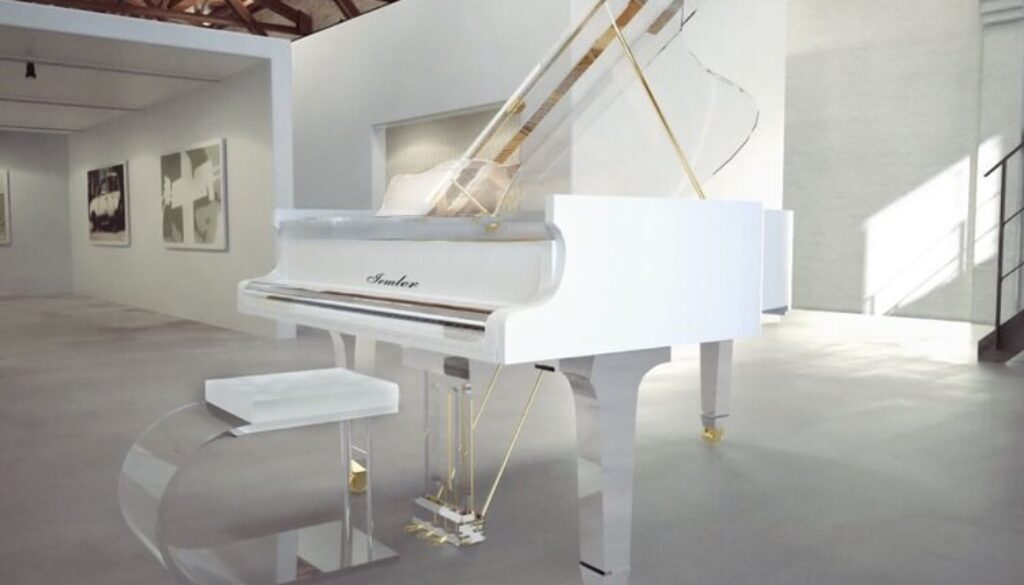Haessler Acrylic Pianos – A Well Kept Secret And A Family Affair
When it comes to pianos, there is a world of fascinating stories, history and inventions that are hard to ignore. The Bluthner – Haessler story is just such a complex and inspiring tale.
This is a Haessler acrylic upright piano. The inner action of the instrument can be seen through the acrylic, making it one of the most interesting and fun uprights on the market.
Most people have no idea of the difficult series of intricate and unknown steps that led to the creation of this instrument, but it’s a story worth telling.
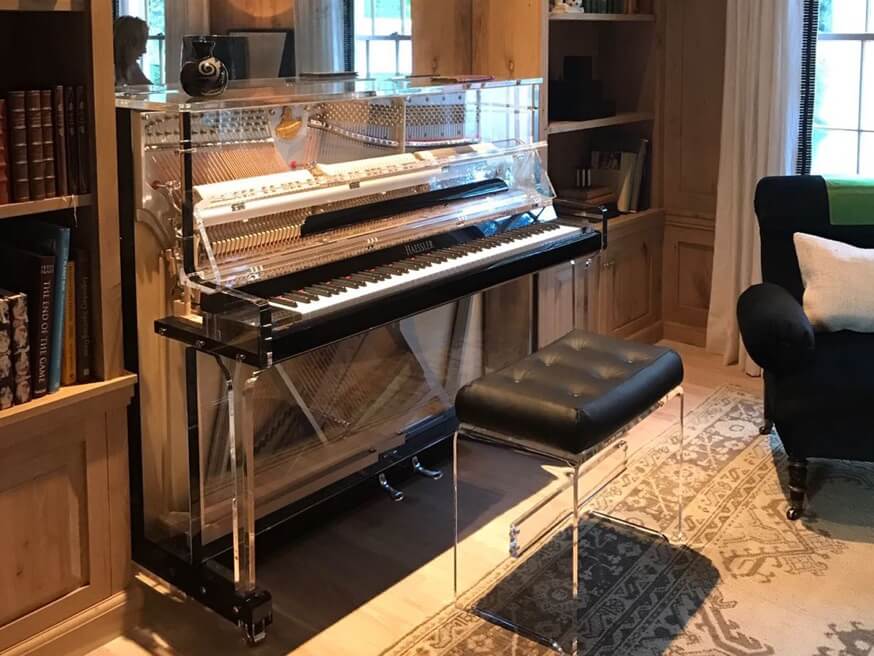
It all began in Leipzig, Germany.
Julius Bluthner
In the piano world, Bluthner is a famous, highly reputable name. The master German piano builder, Julius Bluthner, began his enterprise in 1853 and at one time sold more pianos than any other manufacturer in Europe. Family-owned and operated, the quality of Bluthner’s instruments ranked the company as a national treasure, with customers such as Queen Victoria, Tsar Nicholas II, the Danish King, the German Emperor, the Turkish Sultan and the king of Saxony Well known artists like Mahler, Brahms, Liszt, Rachmaninov, Schumann and Tchaikovsky were guests in the Bluthner home and proudly promoted the Bluthner name.
Julius had eight children and three of his four sons joined the business and were as passionate as their father in building the best pianos in the world.
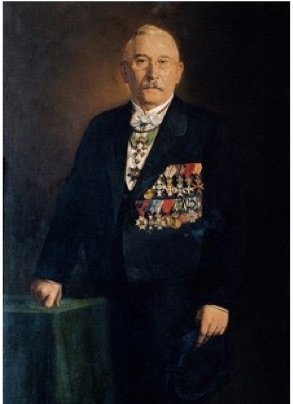
Robert Bluthner
Max, Bruno and Robert Bluthner continued the business with the successful family formula. When Robert’s daughter married Dr. Rudolph Haessler, a successful merchant and lawyer, he was soon embraced into the Bluthner piano world. Robert legally adopted his new son-in-law, to incorporate the Bluthner name with Haessler, merging the surnames for the sake of the business.
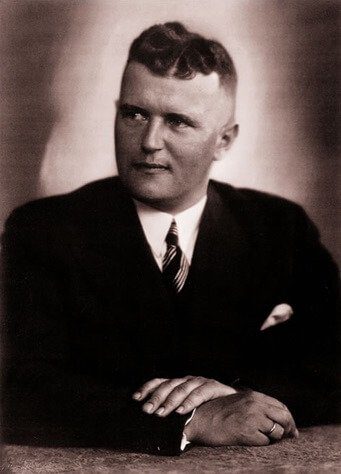
Rudolph Bluthner-Haessler
Robert died in 1932, and his son-in-law took over the Bluthner factory. It was the same year the German Admiralty commissioned a lightweight piano built for the famous Hindenburg dirigible. It was an international event, and a huge success for Bluthner, when the airship crossed the Atlantic with a concert performed on board, and Dr. Rudolph Bluthner Haessler in attendance.
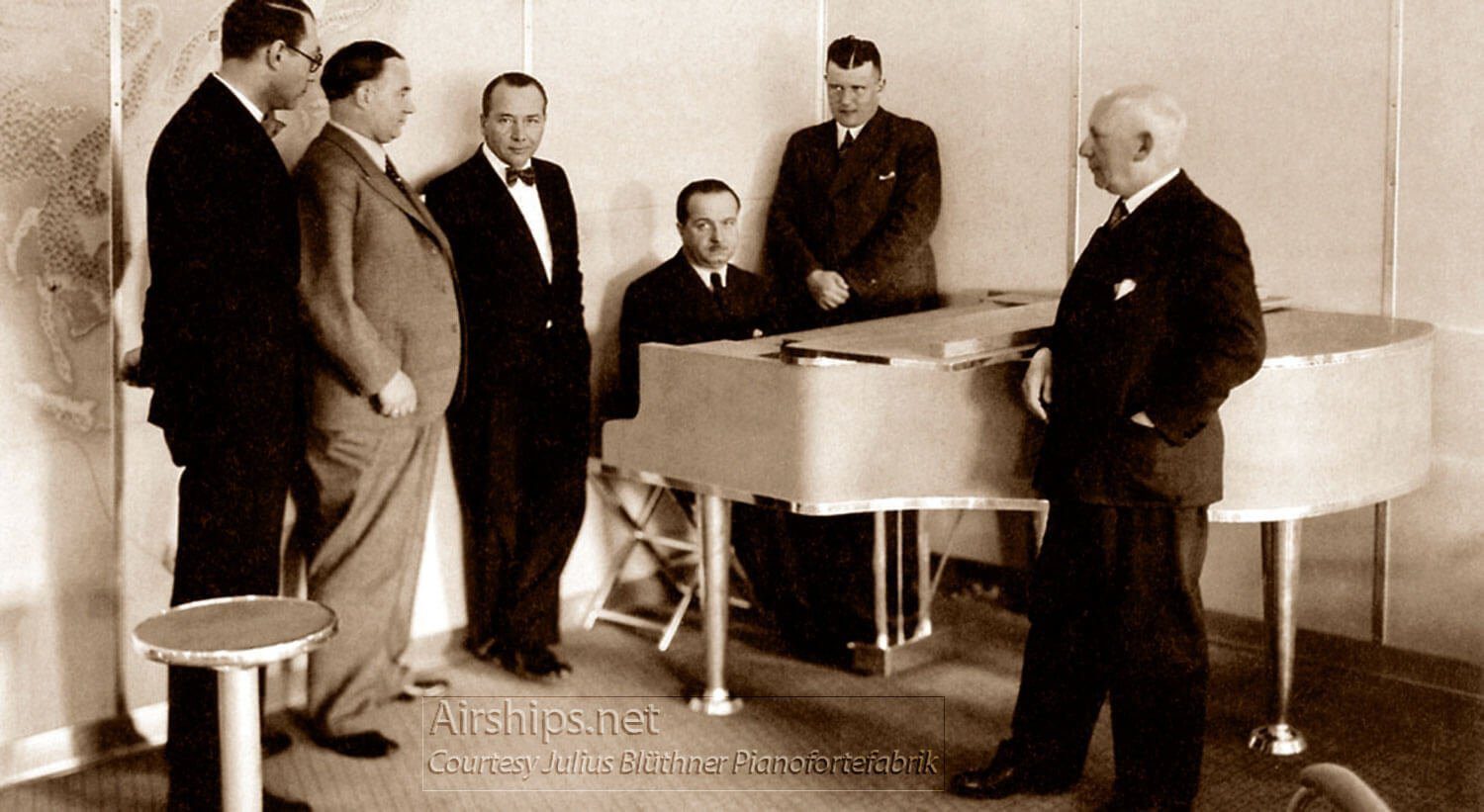
Rudolph Bluthner-Haessler was at the helm in 1943 when the factory was bombed in a World War II air raid and completely destroyed three generations of work in a matter of minutes. All was lost.
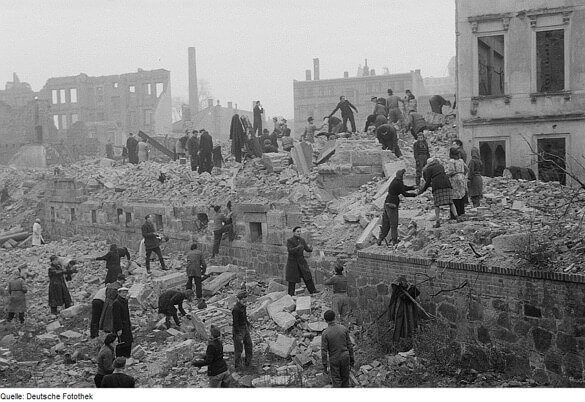
It was through Bluthner-Haessler’s massive efforts and visionary perseverance that the factory was rebuilt. The Soviet occupation did not much help private enterprise, but rebuild he did, and in 1948, pianos began to ship once again. The Bluthner national treasure was also shipping pianos to Leningrad and Moscow conservatories, which might account for what cooperation he could get.
Ingbert Bluthner-Haessler
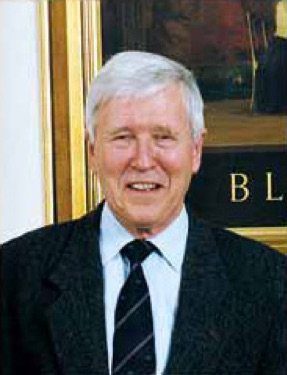
“Quality above everything” was the Bluthner philosophy, and when Rudolph died in 1966, his son, (and the great grandson of Julius Bluthner) Ingbert Bluthner-Haessler took over the company. He weathered the East German nationalization of the company in 1972, and with great difficulty maintained the directorship, keeping the enterprise in the family, until the wall came down in 1989. Thanks to Ingbert, the Bluthner brand survived intact and had regained its standing in the world and flourishes.
Letting no grass grow under their feet, a new concert hall, a new factory, and increased sales all point to a bright future.
Haessler – A New Line Of Pianos
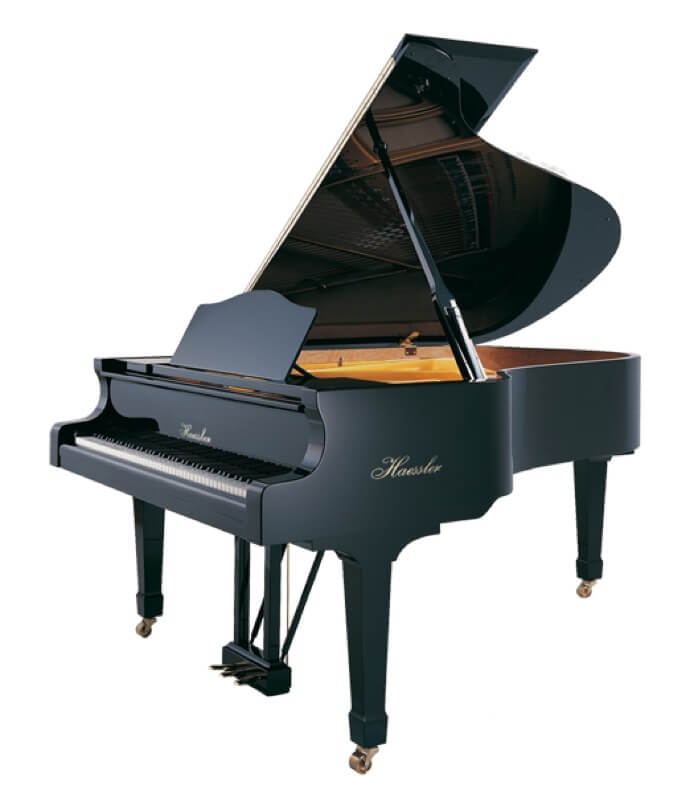
In the 1990’s, Ingbert, with his two sons already trained and involved in the business, started a new line of pianos just as his great grandfather had done. The line carries the name of Haessler, and they incorporate all of the excellence and knowhow of the Bluthner instruments, with a few technical bells and whistles (like aliquot stringing) omitted to cut the pricing by 25%, making a more affordable Bluthner for the West’s ever increasing appetites for high-end pianos.
Lucid Bluthner – A New Line Of Transparent Pianos
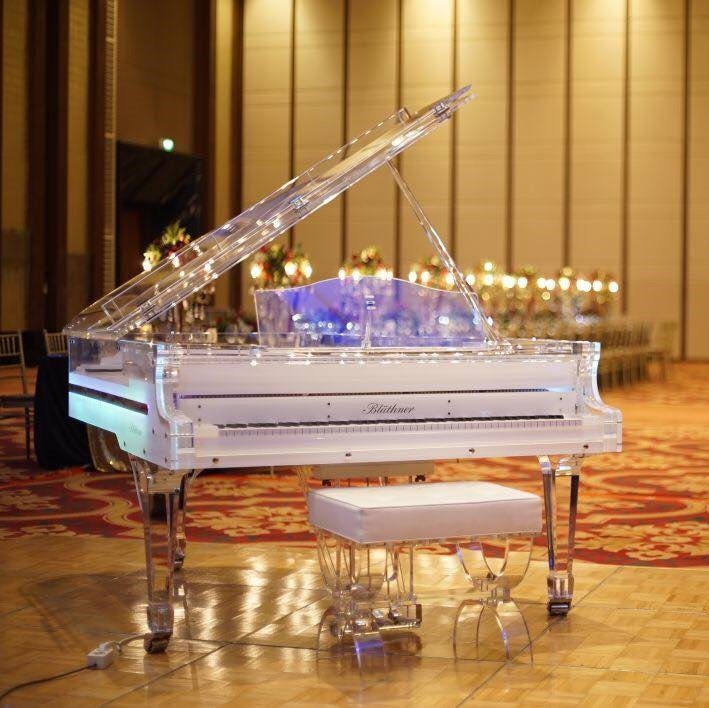
At the other end of the spectrum, Bluthner began a full line of exquisite transparent high-end pianos made from 100% quality acrylic. By forming a partnership with Lucid Pianos, a Spanish company solely creating acrylic instruments, the new Lucid line of acrylic pianos now carry the Bluthner name, as well as the German technology made so famous since 1853 under the see-through lid.
It is the brilliant combinations of 160 years of expertise combined with vision for the future that make Bluthner and Haessler such important contenders in the industry.
Haessler Acrylic Pianos
So, rather than a simple happy ending, it’s the beginning of a new story of the affordable acrylic Haessler pianos – a pretty well kept secret, if you ask me.
